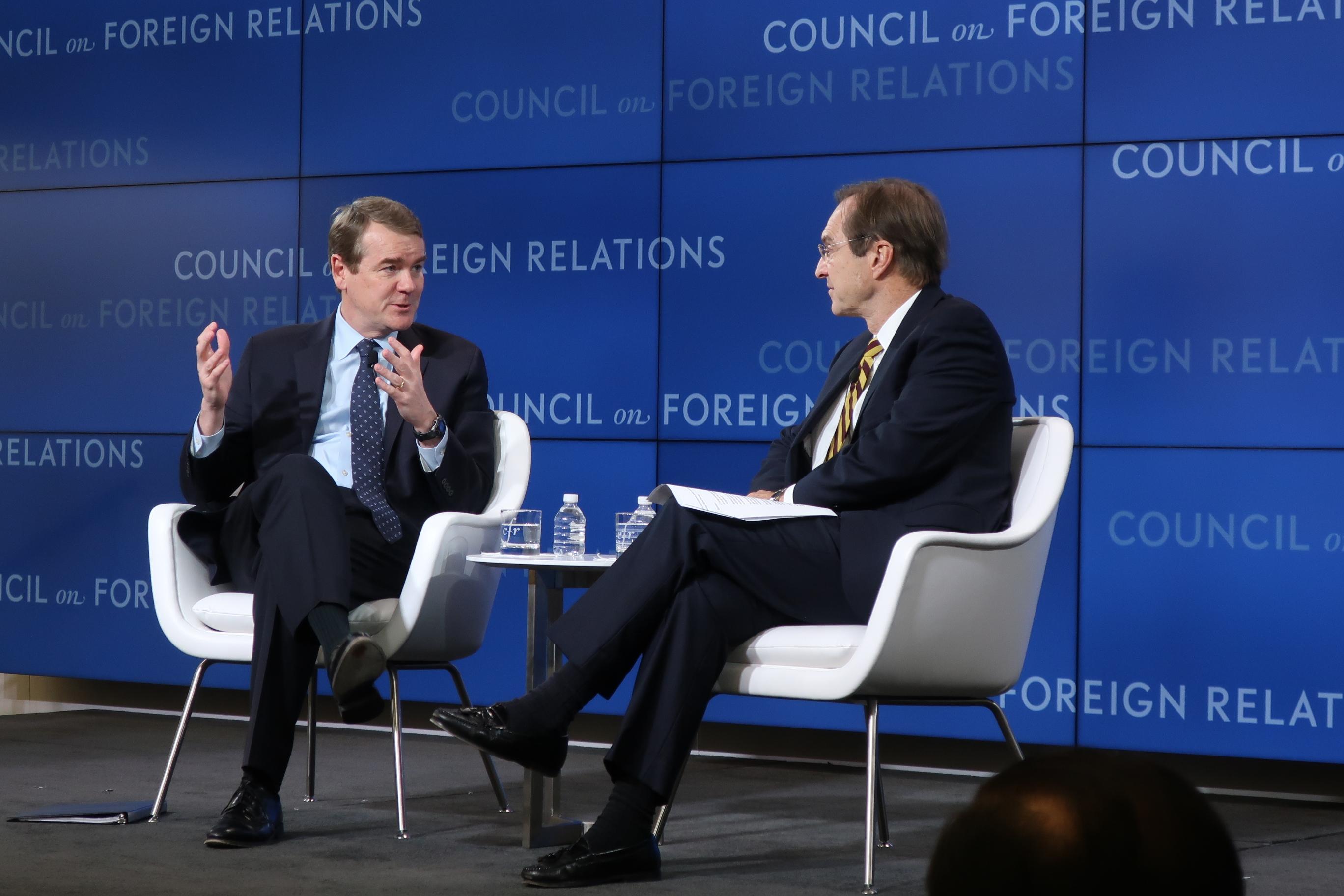
Colorado Sen. and presidential hopeful Michael Bennet shared his foreign policy outlook at the Council on Foreign Relations Wednesday night in Washington, D.C., hours before much of the rest of the Democratic field debated one another in Atlanta.
Bennet hasn’t met the requirements to qualify for the debates since August. While the venue and media presence for his event was much smaller, Bennet at least got the lion’s share of the speaking time.
Bennet noted that in general foreign policy has been “an afterthought” for candidates in the Democratic primary, but that recent events have shown it “deserves our urgent attention.”
The President has a great deal of control over foreign policy, but it’s rarely come up in campaigns or during the debates.
Bennet stressed all the ways in which he believes President Donald Trump is a "fundamentally weak foreign policy president," lacking a coherent foreign policy.
“For 70 years, America was largely the force for stability in the world. The calm in the storm. Under Donald Trump we have become the storm,” Bennet said.
It was not an America First foreign policy that defeated communism or liberated Europe, Bennet said.
“In every arena, the president acts as if America were some two-bit transactional power," he said.
And he argued that Trump’s trade war has been “terribly damaging” to farmers and ranchers. The president has said his tariff showdown with China is necessary to bring that country to the negotiating table.
"One of my chief priorities as President has been removing the barriers to American trade and investment, and ending the illicit practices that harm our workers," Trump said in a recent press conference with the president of Turkey.
In contrast, Bennet made a pitch for the historical American values that made the U.S. the power it is today. Values that include understanding that “our alliances make us stronger, not weaker,” that use of force can’t always keep the country safe and, lastly, that the U.S. holds itself to higher standards and keeps its word.
“Put simply, the world needs American leadership,” Bennet said.
There are three challenges that Bennet said he would focus on as president. He pledged the U.S. would rejoin the Paris Climate Agreement and set even more ambitious standards. He said he’d also confront the rise of China, a country that is using economic diplomacy to build up its influence throughout the world and exporting surveillance technology.
And finally, Bennet said he’d fight attacks on democracy and the rise of the far-right globally. These challenges, and more, Bennet argued, require the U.S. not to discard traditional foreign policy values but “to reaffirm them for a new era.”
But even the foreign policy friendly crowd at the Council pivoted to domestic issues when it came time for the question and answer session, asking about health care, taxes and the divisions in the country. Bennet criticized fellow candidates and Sens. Bernie Sanders and Elizbeth Warren for their Medicare for All stance, and instead pushed his preference to bring down health care costs: a public option.
After taking photos with the crowd, though, and talking more politics, Bennet headed home — to watch the Democratic debate.









